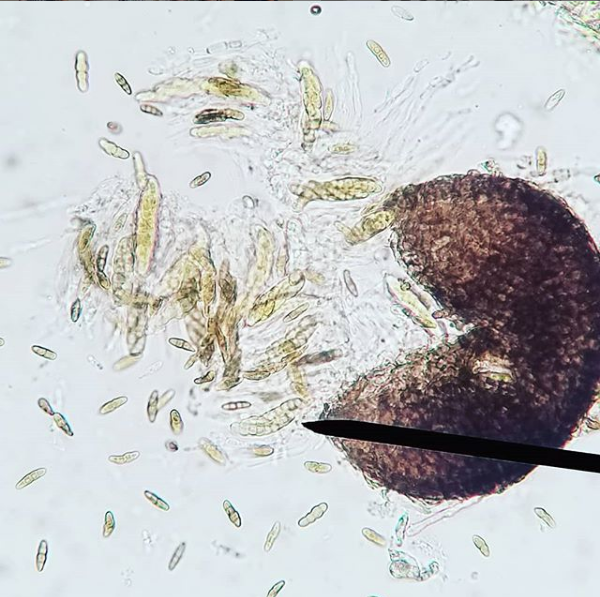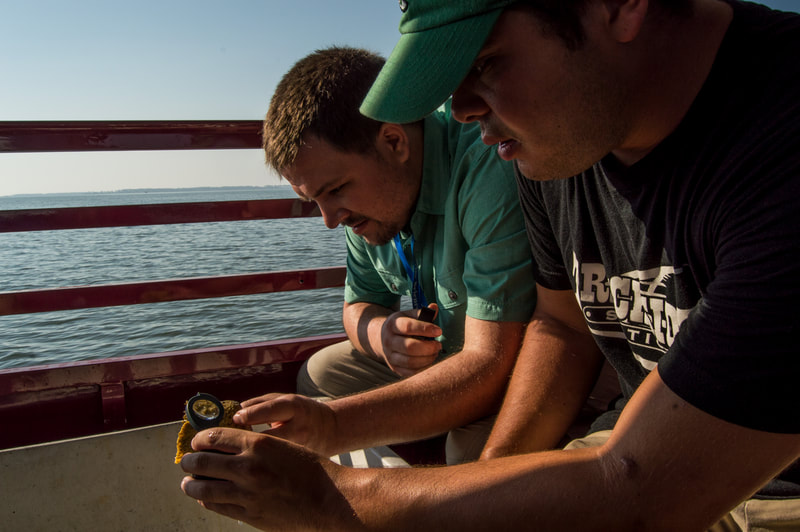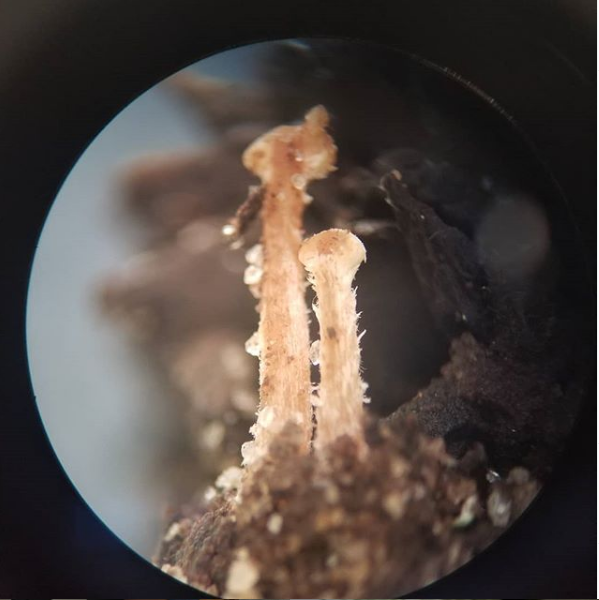COASTAL AND MARINE MYCOLOGY - TBD
DR. CHRIS SMYTH - SUNY BINGHAMTON UNVERSITY
Course Description:
This course will explore the diversity, ecology and evolution of coastal and marine fungal species. Marine fungi are an understudied and underappreciated group of organisms. Like many microorganisms, marine fungi play integral roles in ecology and biogeochemistry in coastal and ocean ecosystems. These fungi can be found anywhere from beach sand to marine sponges. Through this course, students will gain an understanding and appreciation for the diversity of fungi thriving in the maritime forests, estuaries, salt marshes, eelgrass beds and the coastal waters of Virginia’s Eastern Shore.
The focus of this class is to survey the fungal diversity of the near-pristine coastal and marine ecosystems of the Chincoteague National Wildlife Refuge, Wallops Island National Wildlife Refuge, and the Assateague Island National Seashore. There is very little known about fungal diversity in these areas. As a class, we will work to create species lists with real-world implications in the discovery, documentation and conservation of fungi.
Marketable Skills Gained from This Course:
General Description of Field Activities:
Field trips will include hikes, kayaking, and boat trips.
Students will visit a number of ecosystems to observe and collect fungi, including:
Approximate Amount of Course Time Spent in Field:
50%
Prerequisites:
One College Level Biology Course
Required Textbook or Supplies:
Number of Students:
9-14
2024 Chincoteague Bay Field Station Fee*:
3 week course; housing and meals included
Salicornia; $1,794
Traditional; $1,644
Fees are subject to change at the discretion of the board of directors
* Does not include university tuition or fees. For specific policy on CBFS fees, click HERE.
This course will explore the diversity, ecology and evolution of coastal and marine fungal species. Marine fungi are an understudied and underappreciated group of organisms. Like many microorganisms, marine fungi play integral roles in ecology and biogeochemistry in coastal and ocean ecosystems. These fungi can be found anywhere from beach sand to marine sponges. Through this course, students will gain an understanding and appreciation for the diversity of fungi thriving in the maritime forests, estuaries, salt marshes, eelgrass beds and the coastal waters of Virginia’s Eastern Shore.
The focus of this class is to survey the fungal diversity of the near-pristine coastal and marine ecosystems of the Chincoteague National Wildlife Refuge, Wallops Island National Wildlife Refuge, and the Assateague Island National Seashore. There is very little known about fungal diversity in these areas. As a class, we will work to create species lists with real-world implications in the discovery, documentation and conservation of fungi.
Marketable Skills Gained from This Course:
- Collection and preservation of fungal specimens in the field and lab
- Field data collection and analyses
- Fungal biodiversity survey techniques
- Mushroom Identification
- Microscopic Identification of Marine Fungi
- Microbiological Culturing Techniques
- Dissecting & Light Microscopy
- Critical evaluation of peer-reviewed literature
- Science Communication
General Description of Field Activities:
Field trips will include hikes, kayaking, and boat trips.
Students will visit a number of ecosystems to observe and collect fungi, including:
- Maritime forests
- Dunes
- Mudflats
- Intertidal zones
- Eelgrass beds
- Estuaries
- Salt marshes
Approximate Amount of Course Time Spent in Field:
50%
Prerequisites:
One College Level Biology Course
Required Textbook or Supplies:
- A Foldscope Paper Microscope (will provide recommendations to registered students)
- A Hand Lens of at least 10x magnification (will provide recommendations to registered students)
- A field notebook with “Rite in the Rain” paper (Example - Rite in the Rain All-Weather Side-Spiral Notebook, 4 5/8" x 7", Yellow Cover, Field Pattern (No. 353N) - Seller: Amazon
Number of Students:
9-14
2024 Chincoteague Bay Field Station Fee*:
3 week course; housing and meals included
Salicornia; $1,794
Traditional; $1,644
Fees are subject to change at the discretion of the board of directors
* Does not include university tuition or fees. For specific policy on CBFS fees, click HERE.




